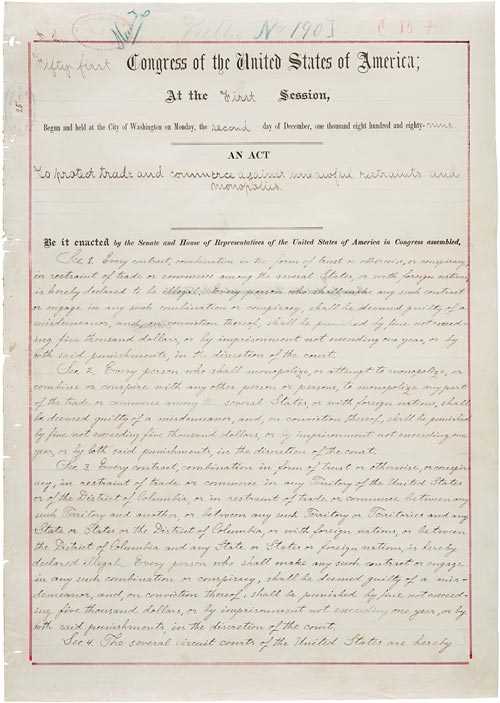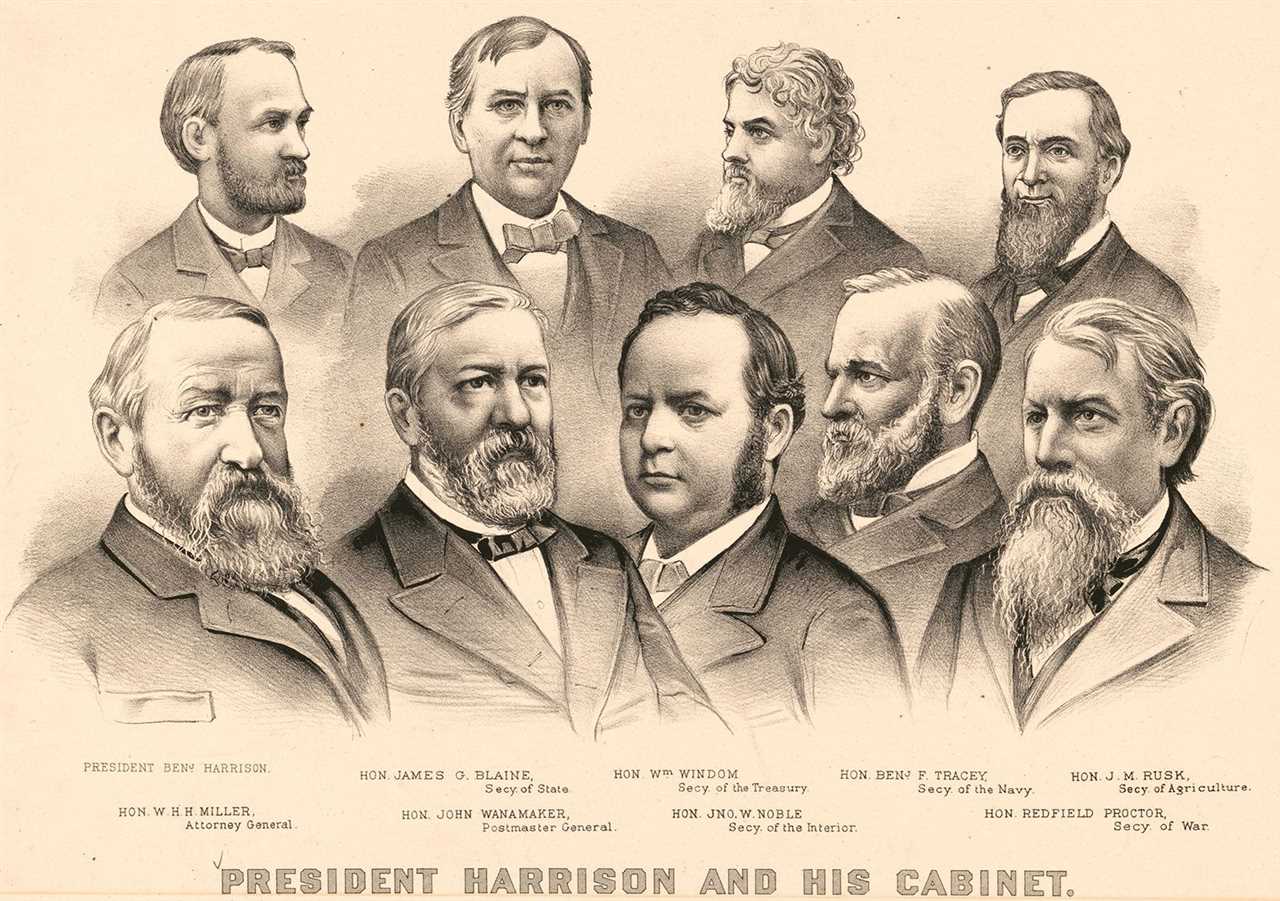Definition of the Sherman Antitrust Act
The Sherman Antitrust Act is a landmark piece of legislation in the United States that was enacted in 1890. It is named after its sponsor, Senator John Sherman of Ohio, and is considered one of the most important laws in the country’s history.
The act is designed to promote fair competition and prevent monopolies and other anti-competitive practices that could harm consumers and stifle economic growth. It prohibits certain business activities that are deemed to be anti-competitive, such as price-fixing, bid-rigging, and market allocation agreements.
One of the key provisions of the Sherman Antitrust Act is Section 1, which states that “every contract, combination in the form of trust or otherwise, or conspiracy, in restraint of trade or commerce among the several States, or with foreign nations, is declared to be illegal.”
This provision makes it illegal for businesses to engage in activities that restrict competition or create a monopoly. It aims to ensure that businesses compete fairly and that consumers have a choice of products and services at reasonable prices.
Historical Significance

The Sherman Antitrust Act was a response to the growing power and influence of large corporations in the late 19th century. During this time, a number of industries, such as oil, steel, and railroads, were dominated by a few powerful companies that controlled prices and stifled competition.
The act was intended to break up these monopolies and promote competition in the marketplace. It was seen as a way to protect the interests of small businesses and consumers, and to prevent the concentration of economic power in the hands of a few.
Over the years, the Sherman Antitrust Act has been used to bring legal action against a number of prominent companies, including Standard Oil, Microsoft, and AT&T. These cases have had a significant impact on the business landscape and have helped to shape antitrust law in the United States.
Today, the Sherman Antitrust Act continues to play a crucial role in ensuring fair competition and preventing anti-competitive practices. It is enforced by the Department of Justice and the Federal Trade Commission, who investigate and prosecute violations of the act.
Historical Significance of the Sherman Antitrust Act

The Sherman Antitrust Act, enacted in 1890, holds great historical significance as it marked the first attempt by the United States government to regulate and control monopolistic practices in the country. The act was named after its sponsor, Senator John Sherman, and was designed to promote fair competition and prevent the formation of trusts and monopolies that could harm consumers and stifle economic growth.
The act declared illegal any contract, combination, or conspiracy in restraint of trade or commerce among the several states or with foreign nations. It aimed to break up existing monopolies and prevent the formation of new ones by prohibiting practices such as price fixing, bid rigging, and market allocation. The act also empowered the government to bring legal action against companies engaged in anti-competitive behavior.
One of the most significant cases brought under the Sherman Antitrust Act was United States v. Standard Oil Company of Ohio in 1911. The Supreme Court ruled that Standard Oil, which controlled about 90% of the oil refining industry, was in violation of the act and ordered its breakup into separate companies. This landmark decision set a precedent for future antitrust cases and established the government’s authority to regulate monopolies.
Over the years, the Sherman Antitrust Act has been used to address a wide range of anti-competitive practices, including mergers and acquisitions that could potentially harm competition. It has played a crucial role in shaping the modern business landscape and promoting fair competition in the United States.
| Key Points |
|---|
| The Sherman Antitrust Act was enacted in 1890 to regulate monopolistic practices. |
| It aimed to promote fair competition and prevent the formation of trusts and monopolies. |
| The act made illegal any contract, combination, or conspiracy in restraint of trade or commerce. |
| One of the most significant cases brought under the act was United States v. Standard Oil Company of Ohio. |
| The act has been used to address various anti-competitive practices and shape the modern business landscape. |

Emily Bibb simplifies finance through bestselling books and articles, bridging complex concepts for everyday understanding. Engaging audiences via social media, she shares insights for financial success. Active in seminars and philanthropy, Bibb aims to create a more financially informed society, driven by her passion for empowering others.
